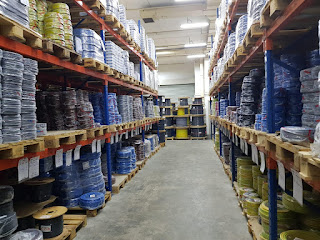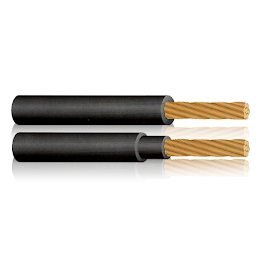Industrial Electrical Cable & Wire Supplier: How To Choose The Right One For Your Business
Industrial Electrical Cable & Wire suppliers are essential to many
businesses that rely on electrical equipment to keep their operations running
smoothly. A wide range of electrical cables and wires are required to power
various machines and equipment, from Data
cable to Welding cables, fiber optic and power cables, solar and
coaxial cables, and flexible and high-temperature cables.
Types of Industrial Electrical Cables and Wires
Data cable
Data cables are available in various types, including twisted pair,
coaxial, and fiber optic cables. Two or more insulated copper wires are twisted
together to form a cable, and this cable is called a "twisted pair."
They have widespread applications in telecommunications and local area networks
(LANs). The components of a coaxial cable are a conductor in the middle, an
insulating dielectric layer, and a shielding conductor on the outside. They are
commonly used in cable television and high-speed data communications. Fiber
optic cables are commonly used in long-distance telecommunications and
high-speed internet connections.
Welding cables
Welding cables are designed for use in welding applications. They
are made of highly flexible copper conductors insulated with synthetic rubber
or thermoset elastomers. Welding cables
are available in various sizes and lengths to suit different welding
applications.
Fiber Optic and Power Cables
Fiber optic and power cable transmit high-speed data and electrical power over long distances. Power
cables are made of copper or aluminum conductors that transmit electrical
power.
Solar and Coaxial Cables
Connecting solar panel to
the inverter or charge controller requires solar wires. They can perform
reliably even in the worst climates. Coaxial cables are used in radio frequency
(RF) applications, including cable television, wireless communication, and
radar systems.
Flexible and High-Temperature Cables
Flexible cables are
designed to withstand constant movement or bending without breaking. They find
widespread use in robotics, automation, and equipment. High-temperature cable are built to withstand the extreme heat in commercial and industrial ovens and
furnaces. They are constructed from high-temperature-resistant materials.
Customization Options
Customization options are also important when selecting an industrial electrical wire and cable supplier.
Industry Experience
Find a provider with
experience supplying industrial electrical cables and wires to your sector.
Benefits of Choosing the Right Industrial Electrical Cable
and Wire Supplier
Choosing the right
industrial electrical cable and wire supplier offers several benefits,
including:
Reduced Downtime
High-quality cables and
wires from a reliable supplier can help reduce downtime due to equipment
failure or malfunction.
Increased Efficiency
The right cables and wires
can help improve the efficiency of your equipment, leading to increased
productivity and reduced operating costs.
Long-Term Cost Savings
Investing in high-quality
cables and wires from a reliable supplier can lead to long-term cost savings
due to reduced maintenance and replacement costs.
Conclusion
Industrial electrical cables and wires are essential components in many businesses that rely on electrical equipment. Choosing the right supplier can help ensure that your equipment operates efficiently, leading to increased productivity and reduced operating costs. By choosing the right supplier, you can enjoy the benefits of reduced downtime, increased efficiency, and long-term cost savings.







Comments
Post a Comment